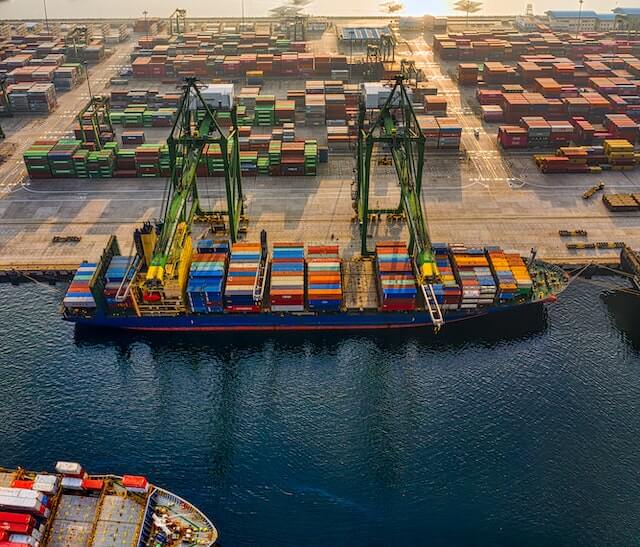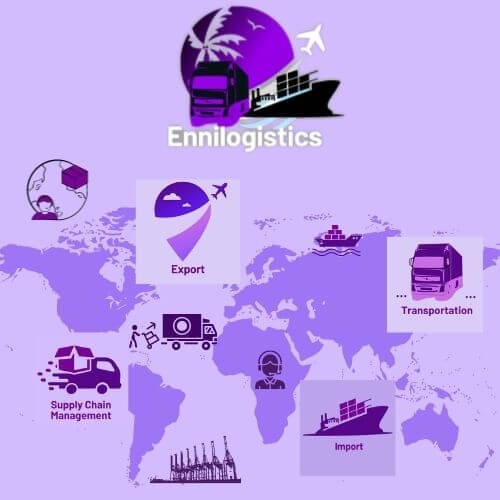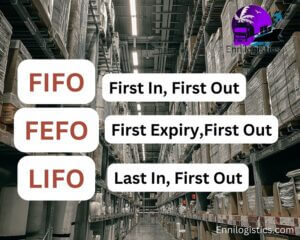Have you ever hit a barrier to speech when trying to converse with someone from a different culture? It might be disturbing, perplexing, or, on rare occasions, even embarrassing. My work in international logistics has made me aware of the significance of cultural sensitivity when moving goods across borders. More than just having a common tongue or adhering to the same set of rules is required in order to deal with the differences among various traditions and customs. In this piece, I’ll discuss the importance of cultural sensitivity in global logistics and how it might impact business operations. We’ll explore the numerous ways that cultural awareness can have a significant impact on the supply chain, including cross-cultural interaction, negotiation, customs and laws, logistics systems, and client satisfaction. Also, I didn’t forget to add some cultural understanding in international logistics examples for you. So let’s investigate this fascinating topic and discover how to establish enduring relationships with clients and partners from all over the world.
What is the importance of culture in international business?
Cultural understanding is vital to success in international business. When dealing with partners from different countries, it’s essential to recognize that their cultural background shapes their behavior and communication style. Building rapport and trust with your partner through a thorough understanding of their culture will ultimately increase your chances of success in negotiations and other business dealings.

One critical aspect of cultural understanding in international logistics is cross-cultural communication. Language barriers, different communication styles, and cultural nuances can all contribute to miscommunication and misunderstandings. You can avoid misunderstandings and forge enduring relationships with your partners by creating effective communication strategies that take these factors into account. Make sure you are going to win your customers through effective cross cultural communication. Focus more on
Customs and regulations are another area where cultural understanding is crucial. When importing or exporting goods, one must adhere to each nation’s unique set of laws and customs. These rules must be followed, or there could be expensive delays and even legal repercussions. By understanding the cultural and regulatory context of your partner’s country, you can navigate these regulations with ease and avoid costly mistakes.
Negotiation is another area where cultural understanding can make a significant difference. Negotiation is viewed as a competitive process in some cultures while being viewed as a cordial exchange of ideas in others. You can adjust your approach to meet their expectations and produce outcomes that are advantageous to both parties by being aware of your partner’s negotiation style. Establishing stronger, more profitable connections with partners from all over the world can increase your earnings, whether you work in logistics, are a supplier, or are a customer.
Customs and Regulations in International Logistics
Navigating customs and regulations in international logistics can be a complex process. When importing or exporting goods, one must adhere to the customs and regulatory requirements that are specific to that nation. These rules must be followed, or there could be expensive delays and even legal repercussions.
Cultural understanding is essential when navigating these customs and regulatory requirements. Cultural differences between countries can result in different legal and regulatory requirements. Giving gifts, for instance, is a widespread custom in some cultures and is possibly viewed as a means of developing friendships and establishing trust. However, in other cultures, gift-giving may be viewed as a bribe and is strictly prohibited. By understanding these cultural differences, logistics companies can navigate the complex landscape of regulations and avoid potential legal issues.
Furthermore, cultural understanding can help logistics companies comply with regulations in other ways. For instance, understanding the cultural context of the regulatory environment can help companies anticipate changes in regulations or enforcement policies. This can help companies to adjust their operations accordingly, avoiding costly delays and compliance issues.
Another way that cultural understanding can help logistics companies comply with regulations is by building relationships with local officials and regulatory bodies. By establishing these connections, businesses can better understand the regulatory landscape and steer clear of any potential problems.
For example, a logistics company working with a partner in Japan may encounter strict regulations related to the import of food products. By understanding the cultural context of these regulations, the logistics company can work with its partner to ensure that all requirements are met, avoiding any potential legal issues. They might also establish connections with local officials in order to understand the regulatory landscape better and foresee any adjustments that might affect their business operations.
By developing a deep understanding of the cultural context of these regulations, logistics companies can comply with them more effectively and avoid potential legal issues.
Cultural Understanding in Negotiation for International Logistics
Effective negotiation is a critical component of successful international logistics, you must have cultural intelligence in logistics. However, negotiation styles and approaches can vary significantly across different cultures. By developing a deep understanding of cultural nuances and preferences, logistics companies can negotiate more effectively with clients, suppliers, and partners.
One critical aspect of cultural understanding in negotiation is recognizing that negotiation styles can vary widely across cultures. For instance, within certain societies, negotiation is viewed as a collaborative procedure in which both sides work together to find a compromise solution that can result in a win-win scenario. In some cultures, bargaining is considered a process of rivalry in which each party tries to obtain the optimum outcome for themselves.

By understanding the cultural context of the negotiation, logistics companies can tailor their approach to meet the expectations of their partners. Long-term negotiations and stronger relationships can result from doing this because it fosters rapport and builds trust.
Cultural understanding can also help logistics companies avoid potential misunderstandings during negotiations. For example, certain phrases or gestures that are acceptable in one culture may be considered rude or disrespectful in another. By understanding these cultural nuances, logistics companies can avoid inadvertently offending their partners and damaging the negotiation process.
Furthermore, cultural understanding can help logistics companies negotiate more effectively by anticipating potential challenges or obstacles that may arise during the negotiation process. A logistics company may need to adjust its negotiating strategy to account for the importance of rank and status in decision-making if it is negotiating with a partner in a country with a hierarchical culture, for example.
Building a Logistics Network
Building a successful logistics network in today’s globalized economy requires a deep understanding of cultural and social norms in different countries. Cultural understanding is critical not only for navigating different business cultures and political climates but also for complying with local laws and regulations.
Cultural and social norms can significantly impact the business culture, political climate, and legal system in different countries. For example, in some cultures, business relationships are built on personal connections and trust, while in others, formal contracts and legal agreements are necessary. Moreover, certain cultures may prioritize punctuality and efficiency, while others may place more emphasis on building personal relationships and rapport.
By understanding these cultural nuances, logistics companies can develop strategies for building strong relationships with clients and partners in different countries. This can involve adapting business practices to local customs and expectations, such as adjusting communication styles or modifying supply chain operations to comply with local regulations.
Cultural understanding can also help logistics companies navigate the complex political and regulatory environments in different countries. For example, in some countries, corruption may be prevalent, and understanding how to navigate this can be essential for building successful relationships with partners. In other countries, legal systems and regulations may be particularly complex, and having an understanding of the local laws and regulations can help logistics companies avoid legal issues and ensure compliance.
Moreover, cultural understanding can help logistics companies develop a more comprehensive understanding of their partners’ needs, preferences, and expectations. This can help build trust and foster long-term relationships that are critical for building a successful logistics network.For instance, a logistics company that understands the cultural and social norms of its partner country can better anticipate the partner’s supply chain needs and customize solutions to meet their requirements. This not only improves productivity but also fosters trust and solid business relationships that are founded on respect and understanding.
Customer Satisfaction
The ability to satisfy customers is essential for success in the fiercely competitive world of international logistics. One of the key factors that can impact customer satisfaction is cultural understanding. Different cultures have different expectations for delivery times, packaging, and customer service, and logistics companies that can adapt to these expectations are better positioned to provide personalized service and build strong relationships with customers.
For instance, in some cultures, punctuality is highly valued, and customers may expect their shipments to arrive on time or even early. In contrast, in other cultures, flexibility and patience may be more important, and customers may be more forgiving of delays. Similar to how some cultures might prioritize cost-effectiveness over environmental friendliness, others might put a higher priority on it.
By understanding these cultural differences, logistics companies can tailor their services to meet the specific needs and expectations of customers in different countries. This can involve offering a range of delivery options, such as same-day delivery or scheduled delivery times, or providing eco-friendly packaging options that align with local values.
Cultural understanding can also help logistics companies provide personalized customer service that builds strong relationships with customers. For example, understanding local communication styles and customs can help companies communicate effectively with customers and respond to their needs in a timely and appropriate manner. This can entail customizing communication channels to fit regional preferences, such as switching from email to messaging apps or providing multilingual customer service.
Moreover, cultural understanding can help logistics companies anticipate and proactively address potential issues that may impact customer satisfaction. For instance, by understanding local holidays and customs, logistics companies can plan ahead to ensure that shipments are not delayed or impacted by local events. This can demonstrate a passion to delivering high-quality service that meets every client’s unique requirements and standards while also fostering a sense of trust and confidence with customers.
As we’ve explored throughout this article, understanding and respecting different cultures is a vital aspect of international logistics. From navigating complex regulations to negotiating effectively with clients and partners, cultural understanding is essential for building strong relationships and achieving business success in the global marketplace.

By investing in cross-cultural training and deepening their understanding of the cultures and customs of the countries they work with, logistics companies can gain a competitive advantage. They have the potential to develop into reliable and reputable partners in the global supply chain and contribute to the progress toward a more stable and sustainable global culture.
As our world becomes increasingly interconnected, it’s more important than ever for businesses to prioritize cultural understanding. Logistics companies can not only promote business success but also contribute to the development of a more connected and inclusive global community by embracing diversity and forging strong bonds based on mutual respect and trust.
For this reason, if your logistics organization is interested in growing its international reach, make an investment in multicultural education and learn as much as possible about the traditions and customs of the nations you deal with. By doing this, you can influence the world’s progress toward greater prosperity and connectivity.
You may like to Read,
What is Logistics? simple explanation with examples
7 Rights of Logistics (7R s): For learning Logistics Easily
What is Third party Logistics(3PL)?:Everything you need to know
How to start a 3PL (Third party Logistics) company?
Reverse Logistics: Everything you need to know










